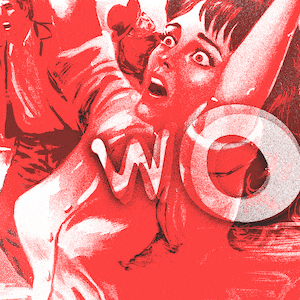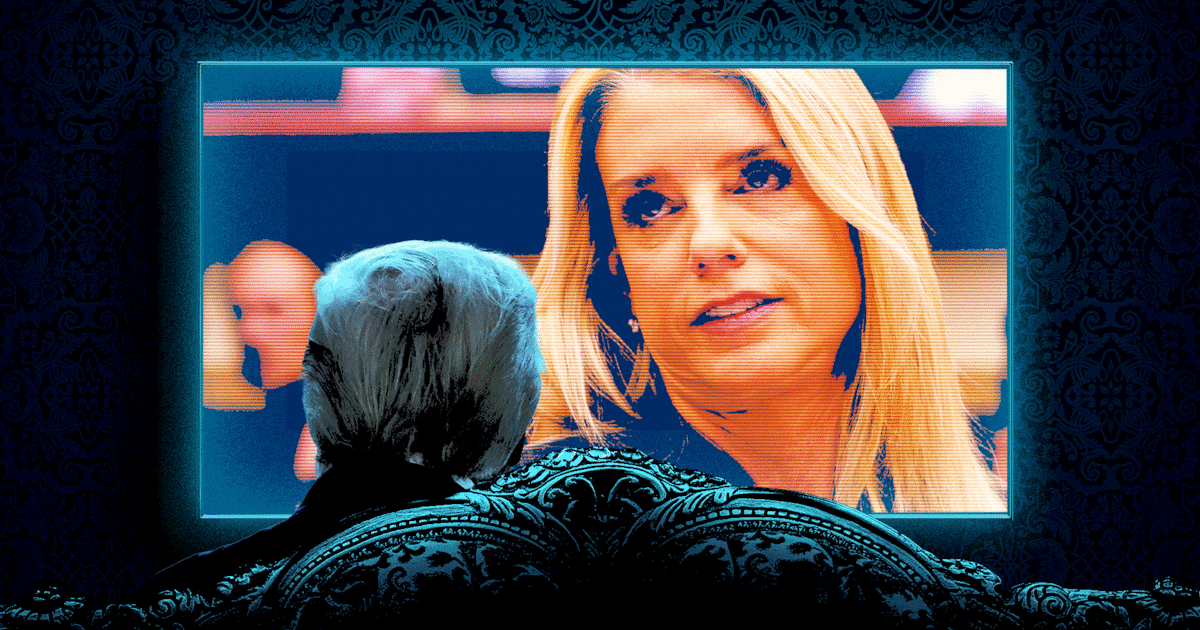[Warning: This column contains Barbie spoilers.]
I did something today that I’ve never done before in my life: check on Ben Shapiro.
I don’t know the guy in real life, but that’s fine; I don’t think we’d get along. But I was a little concerned about his mental state after Shapiro (a 39-year-old man) on Saturday released a 43-minute long video purporting to “destroy” the new hit film, Barbie.
Not to be sexist but: he didn’t look good. He looked tired, agitated, darty-eyed—even… destroyed.
When he described the blockbuster film thusly: “It’s as though you were going to make Toy Story except the toys are all evil, they’re all bad, and you’re supposed to hate them and you’re supposed to burn them.” I thought: Ben, are you OK? Show me where the doll hurt you.
I had never seen Ben Shapiro speak for more than a few seconds before I watched his Barbie review and was shocked at how accurate all of the Ben Shapiro impressions out there are. He speaks like an auctioneer unsuccessfully trying to argue his way into a club with a bouncer, and listening to his voice elicits the feeling of standing in line behind a person ranting over nothing and wasting everybody’s time.
But I soldiered on, a martyr for the cause (writing a thing I agreed to write before I realized how annoying the process would be).
I worried that watching a review that’s a little shy of half the run time of the film itself would give away the entire plot of the movie. But luckily, Shapiro’s review told me very little about the film. I don’t think he understood it, which was good for me, because I try not to learn too much about movies before I watch them.

Based on Shapiro’s apoplexy, I went into the theater expecting to leave ready to round up all the men and send them to an island, where they would be imported back to Woman Land, only rarely to help with certain manly tasks, such as doing pull-ups, opening pickle jars, and dropping atomic bombs.
Instead, I saw a film that showcased how little girls imagine a world where they can be anything through play—until they get older and the patriarchal system into which they were born does its damndest to sever them from those possibilities by ridiculing and diminishing girlhood. Ben saw this as anti-male.
Shapiro begins his movie review by explaining movie marketing to his audience—wait, scratch that.
He actually starts his review by holding a rather phallic toy atomic bomb (to represent the other new film of the moment, Oppenheimer), and a Barbie doll in the other. Shapiro tosses the Barbie over his shoulder towards a trash can, but he misses the shot. Then, a jump cut shows the Barbie doll in the trash can, about to be set alight by Ben’s manly match.
If he’d ended it there, I’d still have disagreed with his assessment and still found the move a bit weird, but would have had to applaud his brevity.
However, self-editing is not one of Shapiro’s fortes. The man cannot, under any circumstances, shut the fuck up, and in the process, tells us a lot more about himself than he does about Barbie.
I don’t think Shapiro “got” what Barbieland was supposed to be, which tells me that he doesn’t know very much about how girls play—a shame, since he has two daughters.
The film’s director, Greta Gerwig, didn’t pull it out of her ass; every woman in the theater seemed to “get” that the mores of Barbieland were a reflection of the way that kids engage with Barbie dolls—minus the Barbie-on-Barbie scissoring many of us did (which I imagine Mattel wouldn’t go for in a movie).

Shapiro ridicules the “wokeness” of having Issa Rae (a black woman! Like Kamala! Absurd!) play the president, as well as the existence of an all-female Supreme Court in Barbieland.
But that’s literally how I played Barbies (minus the Supreme Court, because it was the 1980s, and the court is doing a lot more to mess with the lives of little girls now than it was then). As in Barbieland, the number of Barbies in my collection dwarfed the number of Kens, because Barbie was much more interesting than Ken. Barbie had cooler clothes and prettier hair and frankly, as a small child, I didn’t really feel the need to integrate the idea of boys and men into my imagination play.
And I’m not alone. According to Mattel, there are seven Barbie dolls sold for every Ken doll. Girls just like Barbie better.
But Ben’s biggest Barbie bugaboo seems to be the film’s best sequence—when Barbie, living under the patriarchy that has taken over Barbieland (in the Danish version of the film, brilliantly called “Kenmark”), attempts to retake power by tricking men into thinking their annoying, paternalistic behavior is necessary.
The Barbies discuss conflicting demands put on them by the patriarchy, which Shapiro argues doesn’t exist since the film Barbie was written by and stars a woman, which he insists could not possibly happen if the patriarchy was actually real (he later contradicts himself by pointing out that even though the film was written by and stars a woman, the studio executives behind the film are almost all men. Which is a point that the film itself makes by making the boardroom in real-world Mattel populated by all men.)
Then, there’s a point where Shapiro almost gets it.
“I have a question—I mean, I work with a lot of women… Do they feel like any power they have must be masked under a giggle?”
Yes, actually. That’s why we use so many exclamation points in business emails. (No worries if not!)
Shapiro doesn’t understand this, because he’s incredulous of any woman’s experience as told by the woman herself. None of his “several producers” who attended alongside him got it, either.
It must be difficult to live with the level of gay panic Shapiro seems to experience constantly. He saw a lot of gay Ken stuff in places I didn’t. (But maybe he’s more tuned into when men are acting gay than I am.) He saw a lot of gay Ken stuff in places where the queer audience itself did not see it.
He concludes that all of the Kens are gay, that Alan is especially gay, and that there’s an extended series of gay masturbation jokes that are not appropriate for the film’s target audience. He includes clips from the masturbation joke scene twice in his review, just to make sure we saw it.
He’s also oddly transfixed by Dr. Barbie, played by Hari Nef, who is trans, pointing out that Dr. Barbie has a lower voice than he does, which is an odd thing to point out, because Shapiro’s voice is gratingly high-pitched. A lot of women have lower voices than Ben Shapiro.
One of the most inadvertently funny moments of Shapiro’s 43-minute mental breakdown was when Shapiro could not conceive of how “moms” who watch Barbie could possibly understand references to things like Stanley Kubrick’s 2001: A Space Odyssey, the late producer Robert Evans, or The Godfather.
But this is, precisely, a joke that the film itself makes (men assume that women have no inner life apart from interests designed to attract and please men, and care for their children, and therefore the men must explain cinema to us). This is a joke that seems to have flown way over Shapiro’s head.

Is Barbie the best movie I’ve ever seen? No. It was good. Some of the stuff didn’t work; other parts did.
It delved into themes and ideas that are often left unexplored in film, all of which Shapiro missed.
Little girls imagine a world where they can be whatever they want and hang out with their girlfriends all day long, and only give passing thoughts to boys and men—before the real world corrects them with the notion that actually, everything must revolve around men and the world of imagination they created as children not only does not exist, but its very imagining is an affront to men everywhere.
The film seems like it’s almost trying to elicit an admission from certain viewers. It invites men to say out loud that they see everything that is not specifically for them and that does not specifically worship them as anti-man. Things that have literally nothing to do with them but fail to center them are, from their perspective, man-hating. They see women wanting to simply be left alone and have spaces to themselves as a militant stance.
In Barbie, when the women are in charge, Ken is not subjected to cruelty, pain, or servitude—only indifference. Ken still gets to hang out with his friends and can basically do whatever he wants. It’s just that Barbie doesn’t spend much time thinking about him, or what he’s doing, or what he cares about—because the little girls who play with Barbie don’t.
But in the mind of men like Shapiro, even imagining that they are not the center and source of every woman’s fulfillment is world-rocking.
A certain sort of person—a certain sort of man—must believe that he is the best thing that ever happened to his mommy, that he brought her nothing but joy, and that his wife’s greatest achievement is pushing his kids out and then giving them his last name. The film poked the bear, and Baby Bear answered.
Shapiro seems to have recovered from spending a whole two hours of his life watching developed female characters have conversations with each other, using words co-written by a woman.
I was relieved to find by perusing his Twitter feed on Monday that he’s actually doing great. He’s not mad that people are dunking on him for his weird response to a summer blockbuster. He’s sorry everybody is so mad about his correct take on a film he admits was “for little girls.” He’s laughing, actually.
He’s moved on to complain about the casting of diverse non-dwarves in the forthcoming live-action Snow White and the Seven Dwarves. And also tweeting about how Barbie isn’t making much money in China, and bemoans the fact that “Women used to build society. Now they dress in pink and bring a bottle of wine to an air conditioned theater to cry in solidarity with an actress lecturing America about how hard it is to be a woman, then rage-tweet at people who don't like 'Barbie.'"
Totally normal stuff. He’s doing great.










